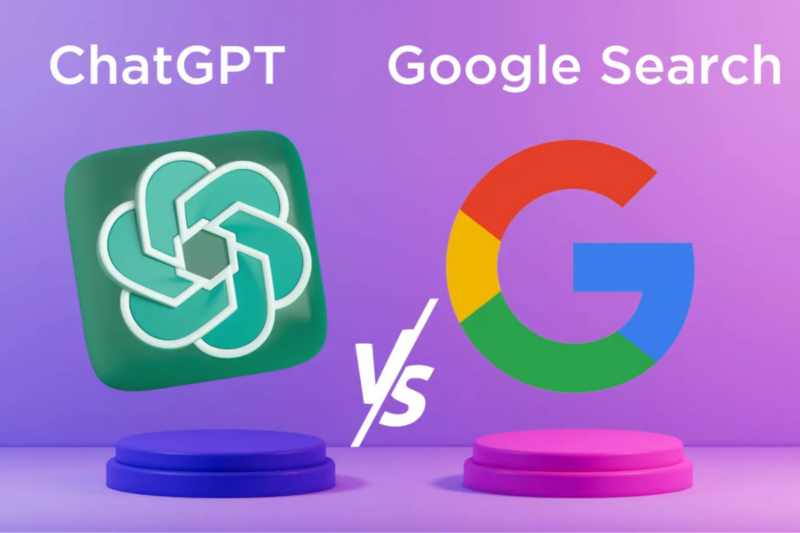Google has long been synonymous with online search. However, the emergence of ChatGPT Search by OpenAI which combines ChatGPT’s conversational capabilities with advanced search functionalities, could well upset this balance. Who will emerge victorious from this AI revolution?
The battle for online search supremacy is just beginning! What advantages and challenges do these new technologies bring? How will they influence our access to information, especially in the run-up to crucial events such as elections? Dive into this article to discover what’s at stake in this fascinating competition.
Google: the undisputed leader in online search
For years, Google maintains its dominant position in online search thanks to its ability to provide real-time updates, particularly in the financial sector. This performance is supported by collaborations with various financial data brokers, enabling Google to offer accurate, up-to-date information.
In addition, Google continually invests in the integration of artificial intelligence with innovative projects such as Gemini. These initiatives strengthen the relevance and efficiency of its search engine, consolidating its supremacy in the face of emerging competition.
ChatGPT Search vs. Google vs. Bing: Search Results Review. via @TaylorDanRW: https://t.co/5KjMfOVOMZ#Bing #Google #ChatGPT #SEO
– SearchEngineJournal® (@sejournal) November 5, 2024
ChatGPT Search: a new era in conversational search
ChatGPT Search, developed by OpenAI, stands out for its advanced conversational capabilities and understanding of natural language. Unlike Google, which relies on a traditional indexing model, ChatGPT uses Bing to offer more contextual and precise answers. This approach enables the tool to provide detailed and relevant information, particularly in specific areas such as tax information.
When it comes to rate plans or complex searches, ChatGPT excels in providing clear, concise summaries. OpenAI has also improved the reliability of the links provided, boosting user confidence in this innovative tool. However, it is always advisable to check the sources to ensure the accuracy of the information obtained.
The importance of precision in AI search engines
As the US presidential elections approach, the accuracy of AI search engines becomes essential to counter misinformation. OpenAI and Google pledge to carefully monitor election queries, aware of the potential impact of these technologies on public opinion. Adam Fry of OpenAI emphasized the importance of this increased vigilance.
AI integration efforts by Google and OpenAI, with conversational agents like Copilot, aim to offer more intuitive and informative interfaces. These technological advances are crucial


